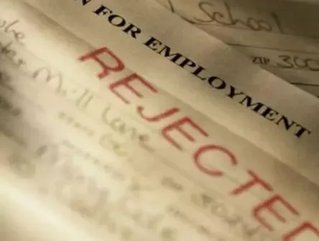How to Help Students Move on after College Rejection

Written by Allison Singh
They say the first heartbreak is the hardest to get over. For many students, this comes in the form of a rejection letter from their dream college. Tuition deposits were due May 1, yet some students are still pining over their lost love. Parents try to lift their spirits by proudly wearing college sweatshirts and slapping stickers on the car, all to no avail. As a former rejected student myself, I offer my advice to help these jilted and jaded students move on and get excited about college again.
First, don’t take rejection personally. Many students are stuck in rewind trying to figure out what they did wrong. The answer is nothing (assuming they gave it their all in high school). The college admissions process is not a meritocracy. Colleges have priorities and agendas they must serve before an application is even read – spots reserved for athletes, wealthy donors, legacies, and underserved geographic/racial/ethnic groups. The factors determining whether students receive a thick or thin envelope are often beyond their control, and bear no connection to their qualifications. Rejection will not hold a student back, but entering college full of self-doubt and bitterness will.
Second, it doesn’t matter as much as they might think. After graduating from “elite” undergraduate and law schools, and spending years in corporate America, I’ve learned that the name on a diploma is not a strong indicator of future success. Recent studies by The Wall Street Journal, Fortune and others undermine the presumed correlation between school status and job placement, salary level and career advancement. Today’s students will be entering a workforce in which the answer to the question “What can you do?” carries more weight than “Where did you go?” Graduating from an “elite” college doesn’t guarantee a student can do anything. College major, grades, internships, work ethic and passion – those are the factors most relevant to career success. Unlike the college admissions process, those are within a student’s control.
Third, welcome to the real world. High school is a very small world, and the sausage grinder of the college admissions process leaves students with a very narrow perspective. What happens next is more important than anything that happened in high school. There is a lot of important work to be done in college – big questions that need answers, such as:
· What are your life goals?
· How will college help you accomplish them?
· What skills do you need?
We live in a complex world; college is the perfect time for students to make sense of it, and find their place in it. This can be done anywhere, as long as they arrive on campus with an open, inquiring mind.
Fourth, believe in yourself, not the admissions committee. Students often hand over their self-esteem to anonymous admissions officers – a cost too high for any college. We all face rejection at some point. College rejection presents the opportunity for students to learn valuable coping skills early on, and define success on their own terms. Doing so will serve them better than a degree from any school.
Finally, a word of advice to parents and counselors before they begin the conversation: Do not minimize the impact of rejection. These wounds cut deep at a very vulnerable time in a teenager’s life. After all, many of these students spent four years doing what they thought they were “supposed” to do to get into their dream school. In many ways, we set them up for this, and owe them an honest explanation and useful advice when it doesn’t work out.
About the Author: Allison Singh is the author of Getting Over Not Getting In: A College Rejection Guide, available at www.amazon.com; for more info, see www.collegerejection.com.






